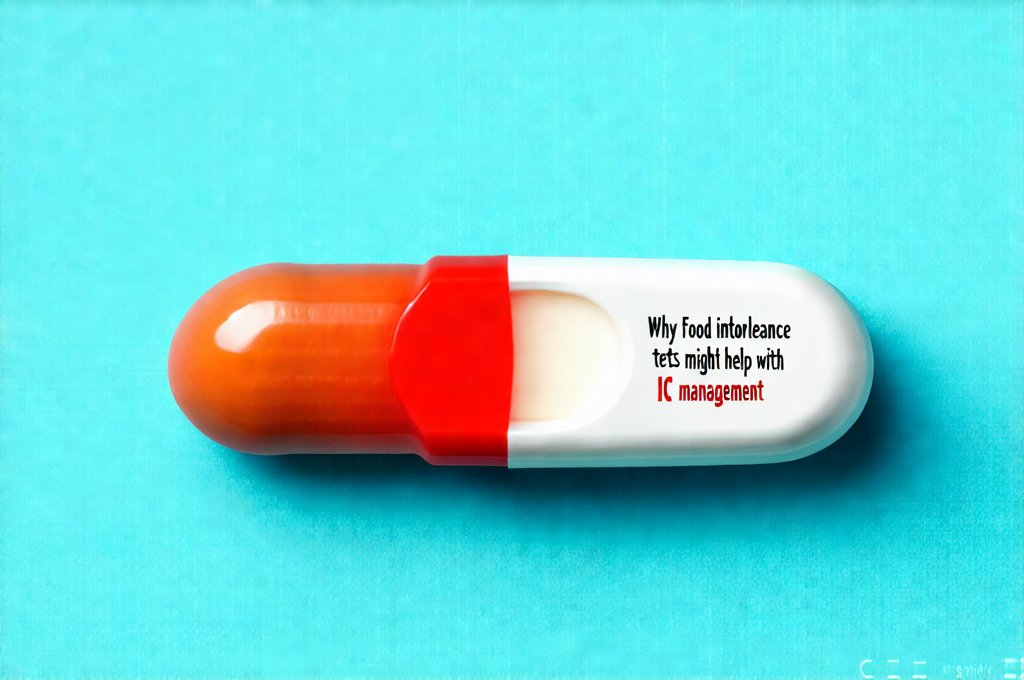Interstitial Cystitis (IC) is a chronic condition causing bladder pain, urinary frequency, and urgency, significantly impacting quality of life. While there’s no definitive cure for IC, management strategies focus on symptom relief and improving overall wellbeing. Traditional approaches include medications to manage pain and inflammation, physical therapy, and lifestyle modifications like dietary changes. However, the complex nature of IC means that what works for one person may not work for another, leading many patients to explore alternative or complementary therapies alongside conventional treatments. This search for personalized solutions has led to growing interest in food intolerance testing as a potential tool for managing IC symptoms – but it’s important to understand why this connection exists and how reliable these tests truly are.
The link between diet and IC isn’t new; many individuals with IC report symptom flares triggered by specific foods or beverages. This suggests that dietary sensitivities play a role in exacerbating bladder irritation. However, identifying those trigger foods can be challenging without systematic investigation. Food intolerance testing aims to pinpoint which foods might be contributing to inflammation or immune responses that worsen IC symptoms. It’s crucial to differentiate between food allergies (immune system response resulting in serious reactions) and food intolerances (digestive difficulties, often less severe). While allergy testing is well-established, the accuracy and clinical utility of many food intolerance tests are debated. This article will explore how these tests might help with IC management, the types available, their limitations, and what to consider if you’re thinking about pursuing this approach.
Understanding the Gut-Bladder Connection
The growing interest in food intolerance testing for IC management stems from a deeper understanding of the gut-bladder axis – the bidirectional relationship between the gastrointestinal tract and the urinary bladder. A healthy gut microbiome is essential for overall health, influencing immune function, inflammation levels, and even neurological pathways that affect bladder control. When the gut barrier becomes compromised (often referred to as “leaky gut”), undigested food particles and toxins can enter the bloodstream, triggering systemic inflammation. This inflammation isn’t just limited to the digestive system; it can reach other parts of the body, including the bladder.
- Increased intestinal permeability allows for greater exposure to potential irritants.
- Chronic inflammation, whether originating in the gut or elsewhere, is a hallmark of IC and can exacerbate symptoms.
- Disruptions in the gut microbiome have been linked to altered immune function and increased sensitivity to pain signals.
Food intolerances contribute to this cycle by causing local inflammation within the gut, further disrupting the barrier function and promoting systemic inflammation. Specific food sensitivities may also trigger mast cell activation—a key component of IC pathology—releasing histamine and other inflammatory mediators that irritate the bladder lining. Identifying and eliminating these triggering foods could potentially reduce overall inflammation and alleviate IC symptoms for some individuals. This is why many IC patients report improvements when following elimination diets, but maintaining a long-term, tailored diet requires pinpointing the problematic foods accurately, which can be difficult without assistance. Understanding why doctors order urinalysis alongside dietary considerations offers a more complete picture of bladder health.
Types of Food Intolerance Tests & Their Reliability
Numerous food intolerance tests are available commercially, ranging in price and methodology. These typically fall into several categories: IgG antibody testing, elimination diets (gold standard), breath tests, and bioelectrical impedance analysis. IgG antibody tests measure levels of IgG antibodies to various foods – the idea being that elevated levels indicate a sensitivity. However, IgG antibodies simply demonstrate exposure to food, not necessarily intolerance or reactivity. In fact, detecting IgG antibodies is a normal immune response, indicating your body has encountered the food before. Many experts consider IgG testing unreliable and unhelpful for diagnosing food intolerances.
Elimination diets remain the gold standard for identifying food sensitivities. This involves removing suspected trigger foods from the diet for a period (typically 2-4 weeks) and then systematically reintroducing them to observe any symptom changes. While effective, elimination diets can be challenging to implement without guidance from a registered dietitian or healthcare professional. Breath tests assess hydrogen production after consuming specific carbohydrates, indicating malabsorption issues like lactose intolerance. Bioelectrical impedance analysis is less common, claiming to measure the body’s response to foods but lacks robust scientific validation and is generally not recommended for IC management. It’s critical to approach any food intolerance testing with a healthy dose of skepticism and understand that no test definitively identifies trigger foods; careful observation and personalized dietary adjustments are still essential. For men experiencing related pain, understanding why men might delay seeking help is also important.
Navigating Food Intolerance Testing for IC Management
If you’re considering food intolerance testing as part of your IC management plan, here’s what to keep in mind:
- Consult with a healthcare professional: Discuss the potential benefits and limitations with your doctor or a registered dietitian experienced in IC. They can help you determine if testing is appropriate for your individual situation.
- Prioritize elimination diets: An expertly guided elimination diet offers more reliable insights than many commercial tests. A dietitian can help ensure nutritional adequacy during restriction and guide the reintroduction process to identify triggers accurately.
- Focus on symptom tracking: Regardless of whether you undergo testing, meticulous symptom journaling is crucial. Record what you eat, when you experience symptoms, and their severity to correlate diet with flares.
- Beware of marketing claims: Be cautious of tests promising definitive answers or claiming high accuracy rates. Look for evidence-based information and avoid relying on anecdotal evidence alone.
Interpreting Test Results & Making Dietary Changes
Even if you choose to pursue food intolerance testing, remember that results should be interpreted cautiously. A positive result doesn’t necessarily mean you need to eliminate the food entirely; it may indicate a sensitivity that can be managed by reducing portion sizes or modifying preparation methods. Dietary changes should always be individualized and based on your specific symptoms and tolerance levels. Work with a registered dietitian to create a balanced, nutrient-rich diet that minimizes triggers while ensuring adequate nutrition.
- Start small: Eliminate one food at a time to assess its impact.
- Focus on whole foods: Prioritize unprocessed foods and minimize artificial additives.
- Stay hydrated: Adequate hydration is essential for bladder health.
- Consider other dietary factors: Beyond specific food intolerances, pay attention to overall diet quality, including fiber intake, nutrient density, and inflammation potential.
Long-Term Management & Holistic Approach
Food intolerance testing can be a valuable tool for some individuals with IC, but it’s not a magic bullet. Effective IC management requires a holistic approach that addresses multiple factors – including stress management, pelvic floor therapy, medications (as prescribed by your doctor), and lifestyle modifications. Dietary changes are just one piece of the puzzle. Remember to prioritize self-care, build a strong support system, and work closely with your healthcare team to develop a personalized treatment plan that meets your needs. Ultimately, understanding the gut-bladder connection and making informed dietary choices can empower you to take control of your IC symptoms and improve your quality of life. Recognizing why do bladder symptoms change over time is also crucial for long-term management.





















